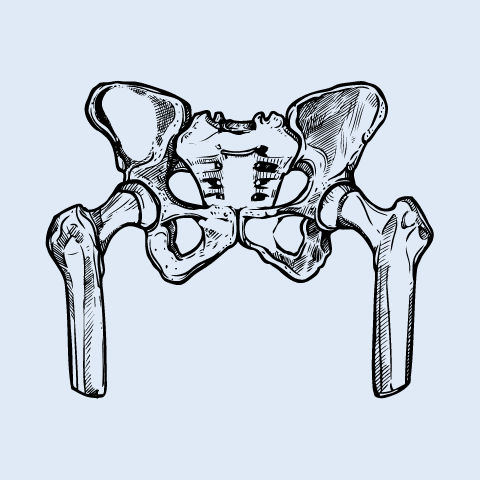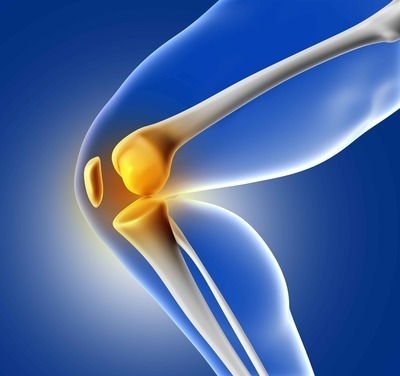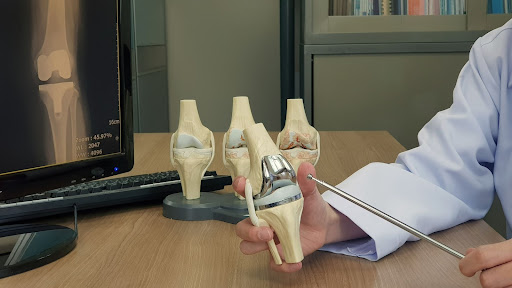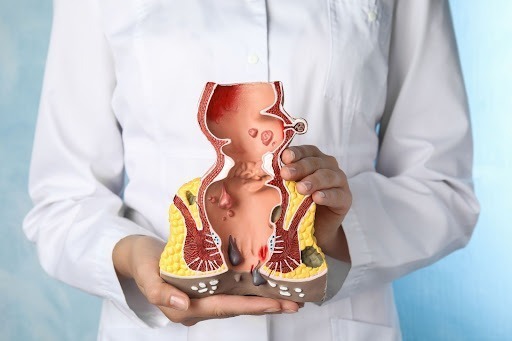Hip Replacement
THR Insights: What to Expect and How to Prepare

by admin
24th January 2024
6 minutes read
Surgery for total hip replacement (THR) is a life-changing technique that may greatly enhance the quality of life for those with hip joint problems. Whether you’re considering THR or have a loved one preparing for it, having the right insights about what to expect and how to prepare is essential. In this blog, we will provide valuable information about THR, from the procedure itself to pre-surgery preparations. Additionally, we’ll address four frequently asked questions (FAQs) related to THR to help you gain a better understanding of this life-changing surgery.
Understanding Total Hip Replacement (THR)
A total hip replacement surgery, also called hip arthroplasty, is a surgical procedure in which a failing or damaged hip joint is removed and replaced with a prosthetic or artificial joint. This surgery is typically recommended when conservative treatments like medications, physical therapy, and lifestyle modifications no longer provide relief from chronic hip pain or mobility issues.
How to Prepare for a Total Hip Replacement (THR) Surgery?
Preparation
- Initial Consultation: The process begins with an initial consultation with an orthopedic surgeon. The surgeon assesses the patient’s condition, reviews medical history, and evaluates the extent of joint damage using X-rays or other imaging tests.
- Comprehensive Evaluation: The surgeon considers various factors, including the patient’s age, overall health, and the impact of hip pain on daily life and mobility, to determine if THR surgery is suitable
- Pre-operative Tests: The healthcare team may request blood tests, urine analysis, an electrocardiogram (ECG), and a chest X-ray to assess the patient’s overall health and identify any underlying conditions.
- Medication Review: The surgeon reviews the patient’s medications, supplements, and herbs to make necessary adjustments or recommendations.
- Informed Consent: The surgeon discusses the risks, benefits, and potential complications of THR surgery with the patient and obtains informed consent.
- Lifestyle Adjustments: Patients are advised to prepare their home for recovery, including rearranging furniture, securing rugs, and installing safety measures like handrails.
- Support System: Establishing a support system is essential, especially for the initial recovery phase when mobility may be limited.
- Pre-operative Instructions: Patients receive detailed instructions, including fasting guidelines for the night before surgery and arrival time at the hospital or surgical center on the day of the procedure.
The pre-operative phase ensures that patients are physically and mentally prepared for THR surgery, enhancing the likelihood of a successful procedure and recovery.
What to Expect During THR Surgery
You may expect the following during the procedure:
- Anesthesia: THR surgery is performed under anesthesia to ensure you are comfortable and pain-free during the procedure. Your anesthesia options may include general anesthesia, spinal anesthesia, or a combination of both.
- Incision: The surgeon makes an incision over the hip joint, allowing access to the damaged hip joint components.
- Hip Joint Removal: The damaged or diseased hip joint components, including the femoral head and acetabulum, are removed.
- Prosthesis Placement: Artificial hip components are securely implanted. These components include the femoral stem, femoral head, and acetabular cup, often made of high-quality materials such as metal, ceramic, or advanced polyethylene.
- Wound Closure: The surgical incision is carefully closed with sutures or staples.
- Recovery: Following the procedure, you’ll be observed in a recovery room before being transferred to a hospital. Soon after the procedure, physical treatment will start to assist you restore your mobility.
Total Hip Replacement – Aftercare
Total Hip Replacement (THR) aftercare is crucial for a successful recovery. Here’s a concise guide:
- Physical Therapy: Start physical therapy to regain mobility and strength.
- Medication: Follow your prescribed medication regimen for pain management and blood clot prevention.
- Assistive Devices: Use crutches or walkers initially for support.
- Home Safety: Modify your home to prevent falls.
- Follow-Up Appointments: Attend all follow-up appointments.
- Lifestyle Adjustments: Avoid high-impact activities, heavy lifting, and smoking.
- Nutrition and Hydration: Maintain a balanced diet and stay hydrated.
- Weight Management: Achieve a healthy weight if needed.
- Rest and Elevation: Rest and elevate your leg to reduce swelling.
- Psychological Support: Seek emotional support if necessary.
- Patience and Persistence: Be patient with your recovery; progress may be gradual.
- Safe Driving: Check with your surgeon about when it’s safe to drive again.
- Infection Monitoring: Watch for signs of infection and contact your healthcare provider if you notice any.
With these measures, you can optimize your THR recovery and enjoy improved hip health and mobility.
Conclusion
Total Hip Replacement (THR) surgery is a life-changing procedure that can provide relief from chronic hip pain and improve mobility for individuals with hip joint issues. Understanding what to expect during the surgery and how to prepare for it is crucial for a successful outcome. By consulting with a knowledgeable surgeon, undergoing necessary evaluations, and making appropriate lifestyle adjustments, you can be well-prepared for THR surgery and its associated recovery.
We’ve also addressed four frequently asked questions (FAQs) related to THR surgery, which offer valuable insights into the procedure and post-operative considerations. THR surgery is a transformative journey toward better hip health, and with the right knowledge and preparation, you can navigate it with confidence and optimism.
Also Read:
| The Art of Renewal: Exploring Total Hip Replacement |
| Cost of Total Hip Replacement (THR) in Bangalore |
| Find Top Surgeons in Bangalore for Total Hip Replacement Surgery |
FAQs
Q. Is THR surgery suitable for everyone?
A. No, THR surgery is typically recommended for individuals with severe hip pain and limited mobility due to conditions like osteoarthritis, rheumatoid arthritis, or hip fractures, who have not responded well to conservative treatments.
Q. What is the typical recovery timeline after THR surgery?
A. The recovery timeline varies for each individual, but many patients can return to light activities within a few weeks and achieve full recovery and optimal function within a year.
Q. Are there any long-term restrictions after THR surgery?
A. While high-impact activities like running and heavy lifting should be avoided, most THR patients can lead an active lifestyle with low-impact exercises like swimming, cycling, and walking.
Q. What are the potential complications of THR surgery?
A. Complications may include infection, blood clots, implant dislocation, implant wear and tear, nerve damage, and adverse reactions to anesthesia. Regular follow-up appointments with your surgeon help monitor and address these issues.
CATEGORIES
- ACL Reconstruction
- Anal Fissures
- Anal Fistula
- Appendicitis
- ASK A DOCTOR
- Benign Prostatic Hyperplasia
- Breast Lump Excision
- Cataract
- Circumcision
- Conditions & Diseases
- Cosmetology
- Covid-19
- Cure
- Endocrinology
- ENGLISH VIDEOS
- Eye Care
- Gallstones
- General Surgeries
- Government Schemes
- Gynaecology
- Gynecomastia
- Health
- Health Insurance
- Hernia
- Hindi
- Hip Arthoscopy
- Hip Replacement
- Hip Replacement Surgery
- Hydrocele
- Kannada
- Kidney Stones
- Knee Arthroscopic
- Laparoscopic
- LASER
- Latest Treatments
- Lifestyle
- Liposuction
- Medfin Stories
- Medicine
- Nephrology
- Ophthalmology
- Orthopaedic
- Paraphimosis
- Patient Testimonials
- PCL Reconstruction
- Phimosis
- Piles (Hemorrhoids)
- Pilonidal Sinus
- Proctology
- Prostate Artery Embolization
- Rhinoplasty
- Second Opinion
- Total Knee Replacement
- Urology
- Uterine Artery Embolization
- Uterine Fibroids
- Varicocele
- Varicose Veins
- Vascular
- VIDEOS







